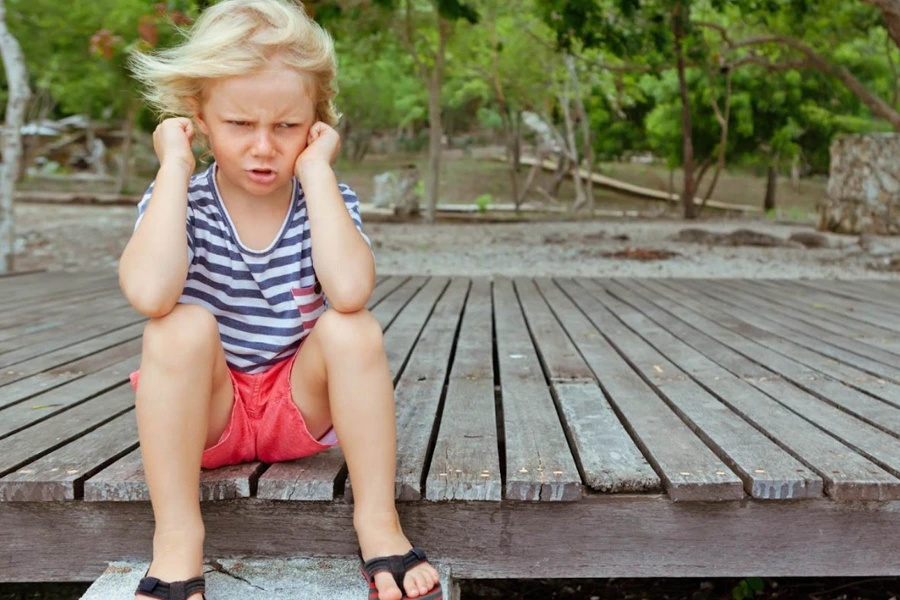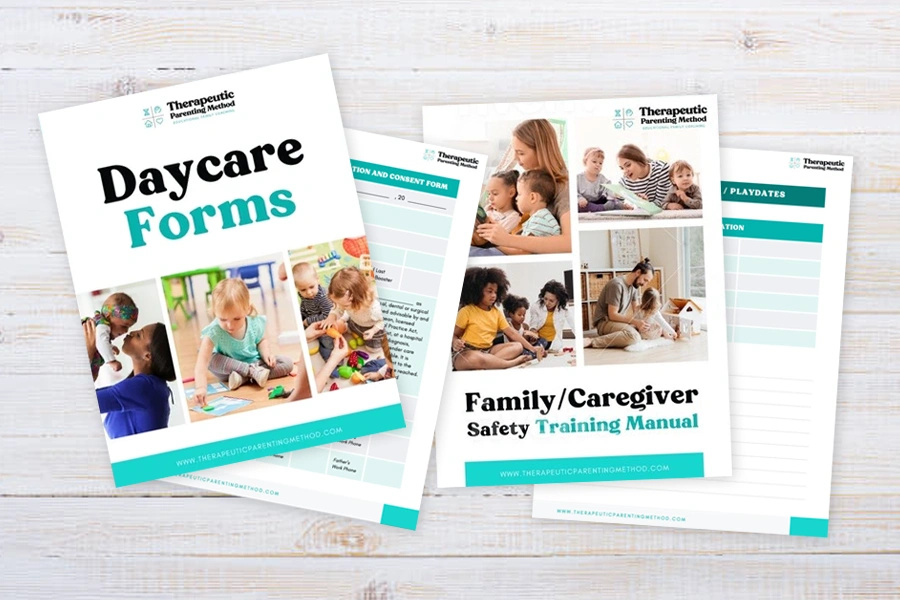Discipline is one of the most difficult aspects of parenthood. We want our children to grow into kind, honest, and self-sufficient adults.
To achieve this we must be willing to discipline our children effectively.
So how can you develop a discipline plan for your child that won’t have a long-lasting, negative affect on your parent-child relationship?
The Therapeutic Method for effective discipline is to first focus on age-appropriate discipline.
In the following guide, we will discuss what effective discipline looks like, and how to discipline appropriately by age.
Child Discipline: How to Create a Discipline Plan for Children
The most important part of establishing a discipline plan for children is to ensure that your discipline is effective.
Effective discipline must be:
- Established by an adult who has a strong bond with your child (typically parents).
- Consistent and applied in a timely manner.
- Appropriate for your child’s age, development, and temperament.
- Fair — this is more important as your child grows.
- Designed for personal growth — eventually your child will be able to self-discipline.
The discipline plan you develop for your child will be unique to your family and your child’s personality. It will also need to evolve as your child ages.
Discipline Techniques: How to Discipline a Child — by Age
There are a multitude of discipline strategies for modern parents.
Whatever strategy or approach you implement when creating an effective discipline plan for your child(ren), it is most important to make sure your methods are age-appropriate.
In the following sections we will provide some discipline tips for infants through teenagers.
Age-Appropriate Discipline: Ages 0-2
It is important to remember that before the age of 1, there is not much true “disciplining” you can do.
You can begin to lay the groundwork for true discipline by:
- Using a firm “no” and removing your child from the area.
- Keeping your child away from anything that isn’t safe — he or she will be curious about the world. Keep them from touching or playing with unsafe items.
- Distract, redirect, or divert your child’s attention when they are doing something they shouldn’t.
Around 18 months of age:
- Time-outs can be used.
- Be sure you are modelling the behavior that you want from your child.
Age-Appropriate Discipline: Ages 3-5
At this age, your child is still learning their limitations. They can’t do everything they want to do — especially on their own.
These limitations can lead to outbursts and tantrums.
Try to have realistic expectations about your child’s behavior during this time. He or she may not be misbehaving intentionally, but as a response to their lack of independence.
When developing an age-appropriate discipline plan for this age group:
- Explain to your child what you expect from them before disciplining.
- Repetition is important so that your child remembers — be patient and willing to repeat.
- Your child may not always understand the meaning of your words, so keep explanations simple.
- You must be consistent on how discipline is handled — all parents always need to be on the same page.
- Encourage your child to use words to express why he or she is angry rather than acting out.
- Reward good behavior.
- Use specific praise — for example: “Good job picking up your toys without whining when I asked.”
- Time-outs can be used.
- Tell children what the right behavior is — for example: don’t say “Don’t whine.” Instead, say: “Please use your big boy voice.”
- You may need to take a break from a situation if your child is misbehaving in order to allow him or her to calm down.
Always remember your child may be bored and might benefit from additional physical activity.

Age-Appropriate Discipline: Ages 6-8
Around this age, your child is learning to navigate their life with more autonomy.
This perception of increased independence can lead to conflict between you and your children.
An effective discipline plan for children in this age group should allow children to increase their autonomy and make some decisions for themselves.
- Consequences are effective for inappropriate behavior.
- You must be consistent with handling discipline
- Discuss with your child why you enforce the rules that you do
- Have family meetings to discuss family rules and listen to your child(ren)’s opinions
- Do not make unrealistic threats around consequences — for example: don’t say “If you do not share, you will never have another friend over” – unless you mean it.
- Make sure you follow through on the discipline you threaten with. You will lose your credibility with your child if you do not.
- It is important to make sure that all improper behavior has a consequence.
Age-Appropriate Discipline: Ages 9-12
The era of “tween-life” is a continuation of growing independence and autonomy. But now, your children will begin to see the larger picture.
They’ll more often be able to associate actions with a potential consequence. Praise and approval of good behavior is crucial during this time.
During this time in your child’s life, you must:
- Continue to be consistent with rules and consequences.
- Be sure to communicate with your child about the reasoning behind your rules.
- Let your child have some choices around how he or she should be disciplined when bad behavior has occurred.
- Utilize natural consequences — for example: you tell your child to put his bike away so it does not get stolen. When the bike gets stolen, it is a natural consequence for not following your rule.
- Teach your child to recognize behaviors that will likely be accompanied by consequences. This is crucial as your child requests more independence and responsibility.
- Remember not to “save” your child from consequences, as children can learn an important lesson from his or her mistake. For example: your child forgets his lunch. Don’t rush to take it to him at school. Let him learn that there is a consequence for this action.
If natural consequences are not teaching your child, set up some of your own consequences. For example: “If you do not turn off the TV when I tell you, you will not be able to watch TV for the next 2 days.”

Age-Appropriate Discipline: Ages 13+
The teenage years. A lot of parents dread this time. Teens often prefer to listen to peers rather than their parents. They distance themselves from their family and sometimes challenge rules and values.
This is all normal, and an expected part of the development process.
During this time:
- Discipline is just as important as it was when your child was younger.
- Boundaries are still needed and use of consequences is still important to enforce the boundaries.
- Discuss the rules with your child so there is no miscommunication around what is expected.
- There will probably be complaints from your child about the rules, but stay consistent with the boundaries so that he or she learns that you are still in control.
- When a rule is broken, take away a privilege — but be sure to discuss with your child why the behavior was inappropriate and why they are being disciplined.
- Do give some control to your child as this will help your child respect the decision that you make — for example, let your child have control over how her room is decorated.
- Focus on the positives. Give an extra privilege when your child displays good behavior instead of always taking away a privilege when he or she misbehaves. For example, “Since you came home on time last night, I will let you stay out an extra 30 minutes next Saturday night.”



